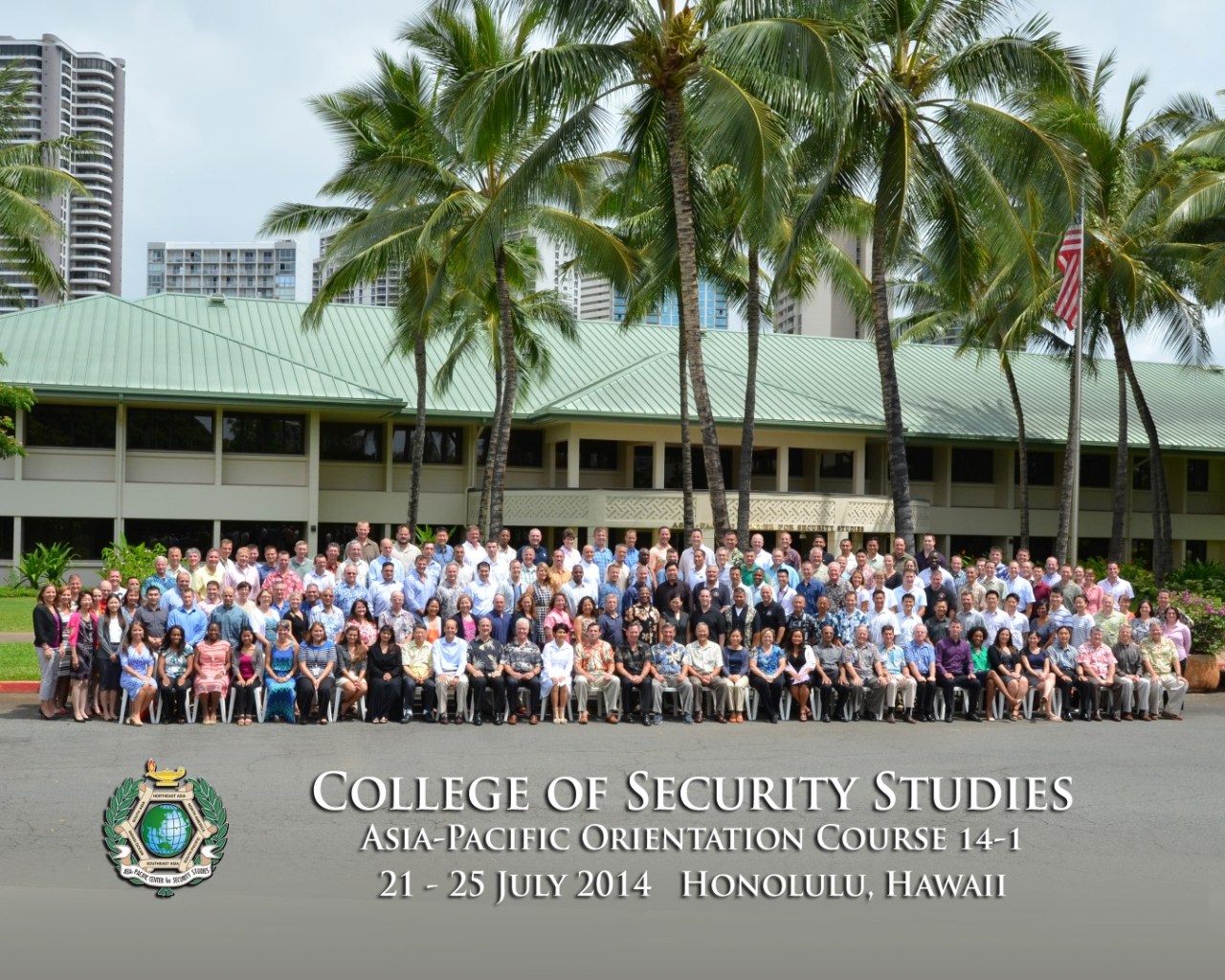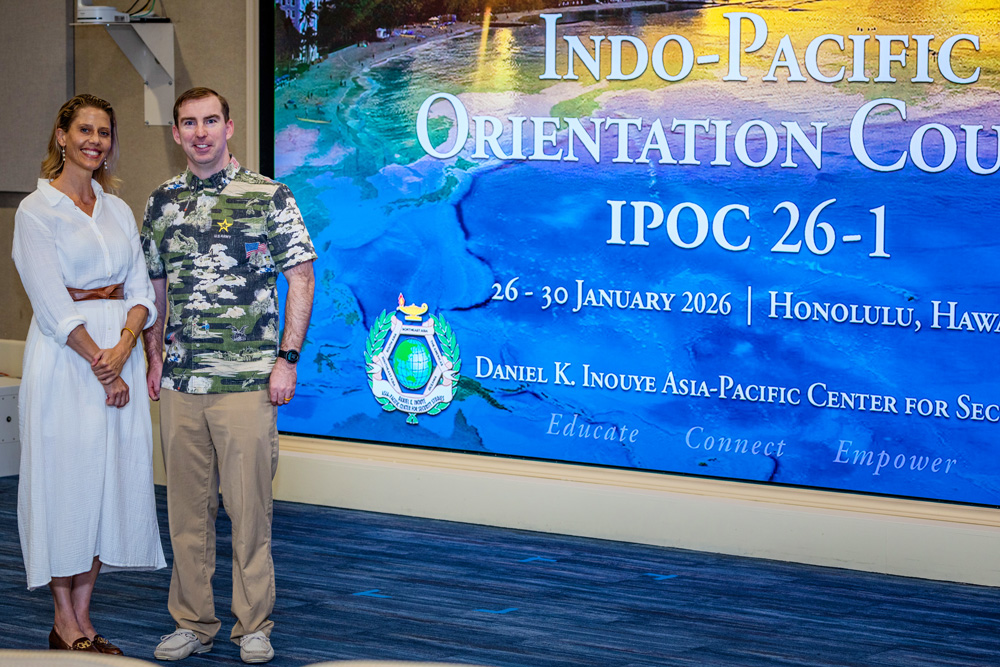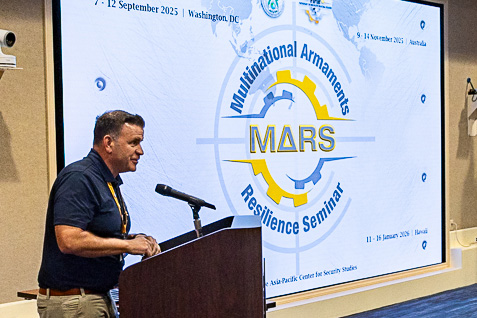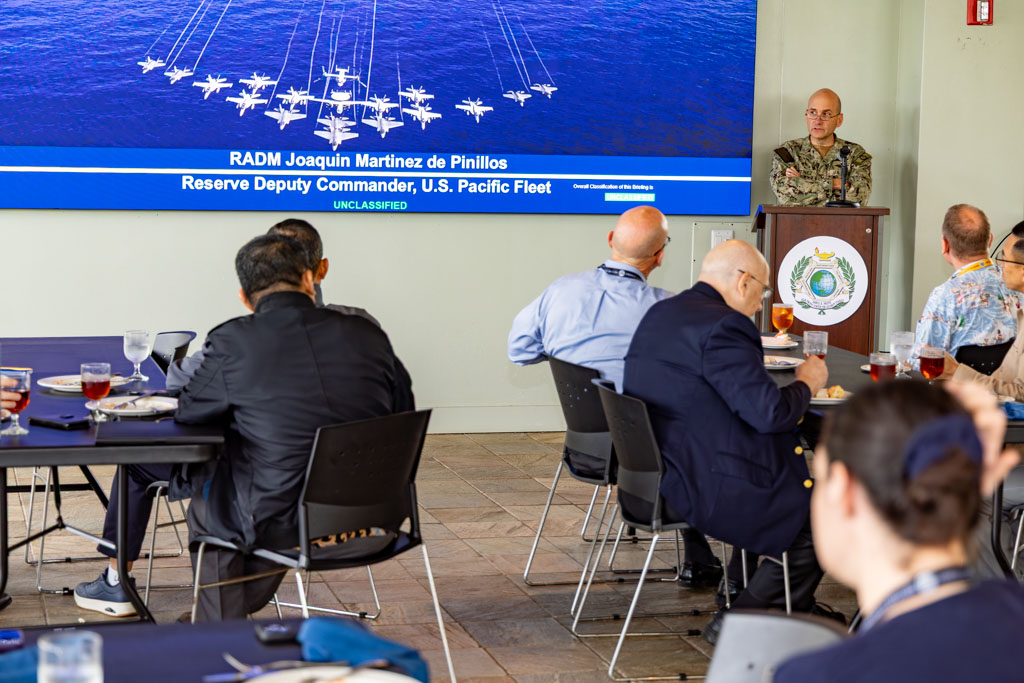By far the largest course ever run by the Asia-Pacific Center for Security Studies, the Asia-Pacific Orientation Course (APOC) 14-1 concluded in Honolulu today, July 25. This was the first of two planned, resident iterations of this course to be offered this year, in addition to two mobile versions, one already held in Tacoma, Wash., while the other is planned to be held in Washington, D.C. during November 2014.
The unprecedented volume and diversity of the 149 participants in this APOC continues to demonstrate the great demand for this week long overview of the Asia-Pacific security environment. Amongst the large, multinational group of security practitioners in the course were representatives from various on-island major component and service commands of the US military, other US government departments and agencies, numerous civilian counterpart agencies, and six regional partner nations including Australia, Brunei, Canada, France (including French territories) Singapore and Taiwan.
APOC provides an overview of the Asia-Pacific region, focusing on the socio-economic, political, military, and cultural influences, as well as the transnational trends and dynamics that shape the region’s security environment, while also examining the increased role and impact of U.S. Rebalance efforts to the area. The instruction methodology is a balance of plenary presentations, small seminar discussion groups, “brown bag” working lunch sessions, and elective seminars.
APOC 14-1 featured two external guest lecturers: Ms. Lisa Carle, the Foreign Policy Adviser of USARPAC, delivered a presentation on, “U.S. Foreign Policy and Diplomacy in the Asia-Pacific,” and Mr. Chris Isham, the Director for Plans and Policy Joint Interagency Task Force-West (JIATF-W), provided a brief on the current state of transnational drug trafficking. APOC Course Manager, Dr. Virginia Watson, avers that Carle and Isham provide important interagency perspectives in understanding the Asia-Pacific security environment and underscores APCSS’ appreciation for collaborating with security practitioners from other agencies in its executive education courses where possible.
In addition, the course offered working lunch sessions on two of the most important strategic hotspot topics: APCSS Director Lt. Gen. (Ret.) Dan Leaf lectured, “Regional Friction and Its Impact on the North Korea Problem,” and APCSS faculty member Dr. Justin Nankivell presented on, “Security, War, and International Law in the South China Sea.”
The Asia-Pacific Center for Security Studies is a Department of Defense academic institute that addresses regional and global security issues. Military and civilian representatives, most from the United States and Asia-Pacific nations, participate in a comprehensive program of executive education, professional exchanges and outreach events, both in Hawaii and throughout the Asia-Pacific region. The Center supports the U.S. Pacific Command by developing and sustaining relationships among security practitioners and national security establishments throughout the region. APCSS’ mission is to build capacities and communities of interest by educating, connecting and empowering security practitioners to advance Asia-Pacific security. It is one of the Department of Defense’s five regional security studies centers.
Since opening in 1995, the Center has had representatives from over 122 countries and territories attend APCSS courses and workshops, for a total of 8,682 alumni.
For more photos, go to APCSS on Facebook.
-END-










Leave A Comment